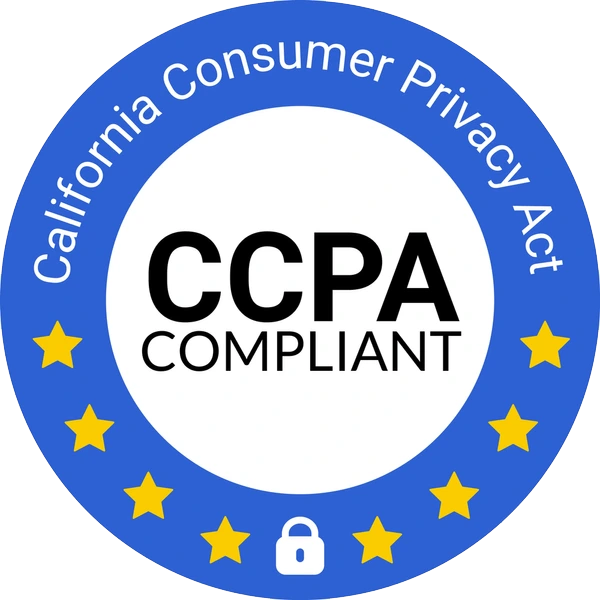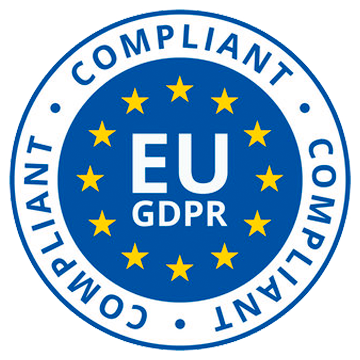With the increasing growth of work from home and multi-office organizations, virtual data rooms have become an increasingly important and valuable tool for businesses. Here’s what you should know about these.
What Is A Virtual Data Room?
A virtual data room is an electronic repository containing files collectively known as data. This can include standard files like word processing documents, spreadsheets, and PDFs. Still, a virtual data room can also include data like pictures, videos, audio recordings, and anything else businesses need to store.
Virtual Data Room benefits
Virtual data rooms offer several benefits for their users, though virtual data room providers don’t all offer the same benefits.
Most rooms offer secure document sharing by allowing users to determine precisely who can access it. This can be anything from anyone with a link to the document to only specific users, often requiring special usernames and passwords. By the same token, these rooms work for secure file sharing between employees and customers.
Virtual data room software can also let people search documents. Of course, this requires having searchable file types, but it helps with organization when companies need to store large amounts of data and reference it later.
Most virtual data rooms allow companies to organize files into different folders. This is fundamentally similar to storing things on a local computer, but virtual rooms like Google Drive can offer additional features that computer systems don’t.
Finally, virtual data rooms usually offer extensive backup options. For example, you may get backups in geographically diverse locations if you buy services from a company like Sizle. This means that even an extreme disaster that annihilates a data center won’t result in the loss of your data.
Most companies rely on data for many things, so having secure and reliable access is quickly becoming a mandatory requirement for information storage.
Virtual Data Room software
Software for these rooms comes in different forms. The most important thing to understand here is that there’s no one-size-fits-all solution for companies. Instead, most small businesses will do well with an online service that offers document storage and organization.
Particularly large companies usually have different requirements for virtual data rooms. Such requirements could include adding more people to the plan, requiring far more data storage, or even a need to keep information on-site.
The good news is that someone almost certainly makes software that’s appropriate for your company’s needs. If they don’t, you can probably custom-order it or even ask an existing provider to add specific new features you need.
Since no software fits every situation, this also means that there’s no best virtual data room, only options that are good for most businesses.
Who can use a Virtual Data Room?
Many different companies can benefit from using virtual data rooms. Here are some examples of when these rooms are helpful.
Real estate
Realtors can make excellent use of virtual data rooms for storing and organizing information about properties. A common setup for realtors is giving each client their folder in the system, which only they and the realtor can access.
Each folder will have information and documents about buying or selling a property. This can include copies of sale agreements, contracts, offers, inspection reports, photos of the property, and anything else relevant to the deal. This provides a one-stop way to get copies of information about sales as needed.
Professional services
Virtual data rooms for consulting are also handy for consultants and professional services like agencies, law firms or accountants.
This is fundamentally similar to using them for real estate, but typically with fewer pictures and more back-and-forth with virtual signatures or acknowledgment of receiving information.
Lawyers, in particular, can benefit from using virtual data rooms to store information about specific cases or clients. For aggressive legal actions, like lawsuits and contract negotiation, virtual data rooms can provide an easy way to store information related to a particular case.
Virtual data rooms are also helpful for research and legal discovery, the formal legal process where sides exchange information. In most cases, discovery is not optional, and each side must provide information the other side requests. Virtual data rooms are a convenient way to provide paperwork digitally.
Accountants can use virtual data rooms to store long-term records for clients and reference them on demand. This is especially helpful when dealing with clients who have complex finances and need centralized storage of information.
Security is helpful for all professional services. Storing data in a password-protected area provides fast access for clients without compromising the ability to provide a secure file transfer.
Business affairs
Any company can benefit from a virtual data room for M&A when undertaking things like company mergers and acquisitions. The M&A process usually requires exchanging significant amounts of information about the company to potential buyers to conduct due diligence. Virtual data rooms offer an easy way to provide this information without the delay of sending it through the mail.
This is more about marketing than anything else. Companies could get a better offer for a merger or obtain other indirect benefits by making things convenient for buyers. In addition, the merger and acquisition process is easier if all documents stay in one place, so using a virtual data room also keeps things secure and accessible.
Banking
Banking is a little different from most other use cases for a virtual data room. Although ostensibly similar to what accountants might do, banks often have varying needs. Rather than providing information to the customer, virtual data rooms may be more helpful for providing information to the bank.
Such information can include financial disclosures, employment records, wage history, or anything else the bank needs to provide its services. This is particularly helpful when the bank can accept a digital version of documents without requiring the originals.
Does anyone else use a Virtual Data Room?
The above situations are common cases where people use virtual data rooms, but they’re not the only cases. Here are some less-common times where people might use them.
Fundraising
Getting funds for business is challenging. As NerdWallet points out, more than three-quarters of small businesses use personal savings for their funds, and only 0.05% of all startups can raise venture capital.
This statistic is a little misleading. Only a tiny fraction of companies get venture capital, but not all of them are looking for it, either. Many small businesses can do well with a decent initial investment from their owners.
The key takeaway from this process is that fundraising usually involves a lot of data sharing between two or more companies. Having a virtual data room can make it faster and easier to share information with adequate oversight from everyone involved. This can even help a company get funding if it otherwise couldn’t.
Virtual Data Room for IPOs
Initial public offerings are an especially complicated time for businesses. Many companies will have to start complying with new rules and guidelines at all levels, including the need for transparency about their operations.
Successfully going through an IPO often involves aggressive document retention and management so the company can provide any information it has at any time. Virtual Data Rooms allow companies to store and organize documents effectively enough to meet regulatory expectations.
Strategic partnerships
Strategic partnerships are different from mergers. These are cases where two companies are working closely together and need to share information but aren’t at the point of combining.
The form of a strategic partnership varies based on the companies involved, but documents to share may include blueprints, business proposals, contracts, sale records, or even shipping information. Intelligent data storage makes it much easier for companies to meet their mutual obligations.
Auditing
Companies rarely enjoy audits, but keeping all the necessary documents in one place can make an audit far less disruptive to the day-to-day activities of workers. It’s important to remember that auditing isn’t always adversarial. Companies may go through internal audits by legal counsel to check for liabilities, financial audits to help trace and eliminate suspected fraud, or an internal check for valuation before a company decides whether to seek a merger.
Most companies can already have the documents necessary for audits available, so creating a folder in a virtual room and copying files is a fast, easy way to give auditors access to their copies of information.
Board vommunication
Board communication is another tricky topic. Some board members want to have as much information as possible about leadership decisions and company operations but don’t work on-site. However, even if they work in an office, today’s workers are more likely to work from home.
Virtual data rooms are a great way to ensure board members have the information they need. This can include everything from reports and presentations to pictures or video guides made specifically for the board.
Most virtual data rooms are secure if configured properly, so this is an excellent way to let board members access information from anywhere in the world.
Intellectual property
Intellectual property is always valuable for companies, but it’s usually even more valuable if kept secret. Virtual data rooms are an effective way to store sensitive company information and prevent unauthorized access to it.
This is particularly helpful because it means companies can safely store IP information off-site. If someone breaks into the office, they still won’t have access to the data as long as companies have reliable data security policies.
Advanced Virtual Data Room features
Some providers offer advanced features for virtual data rooms. Here are some features you’ll see from services like Sizle.
Paper Trails
Virtual data room information storage allows tracking versions of documents. This includes any comments, edits, or signatures that people add to it, ensuring an audit can show each change in the order it happened.
This is especially useful when you’re deciding how to create a virtual data room because paper trails are extraordinarily helpful in some contexts. Notably, some professional services need to demonstrate that a particular change came from a particular person. Having data logs proving things makes this significantly easier.
Legally binding signatures
Many people believe that only handwritten signatures are legally binding, but this isn’t true and hasn’t been for a long time. Services need to follow all the legal rules for this, but allowing legally binding signatures makes virtual data rooms significantly more helpful for lawyers, financial professionals, and anyone else who needs to frequently request electronic signatures.
Document management
Document management is an advanced feature that allows for automatic progression when documents receive specific edits. In this context, automatic progression means moving the file or sending notifications to let people know something happened. This is most useful when a company needs to get a signature on something.
Retention and deletion
Retention and deletion systems are a part of file management. These allow companies to do things like retain documents longer than usual or destroy the copies if ordered to do so by a court.
Proper file management is essential to modern businesses because things can quickly spiral out of control when it all goes in one folder. A robust management and retention system can help companies stay on top of their data. Even without deletion, most virtual data rooms allow rapid permission changes to lock people out as needed.
Collaborative editing
Collaborative editing is a process where multiple users can edit a document simultaneously.
This is helpful when businesses and professionals need to make several rounds of revisions and don’t want to send documents back and forth for each change. In addition, collaborative editing is possible alongside voice and video calls, with records of changes for additional transparency.
Legal compliance
Legal compliance is mainly an application of security features. When deciding how to set up a data room, companies often need to maintain legal compliance with local regulations. This includes FISA in the United States, the GDPR in Europe, and other legislation as relevant.
Companies and professionals who fail to meet these requirements could face fines, loss of licenses, or even jail time.
Watermarks
Watermarks are a security feature where systems can provide the name and date of someone who downloaded a document. This helps limit the possibility of data leaks and makes it easier to track down how and where any document gets shared.
Virus scanning
Some providers offer virus scanning for documents. This usually occurs when a document gets updated and can slow things down a little, but the extra time is usually a fair tradeoff for added security.
Save encryption
On-save encryption is an extra layer of security for documents that protect them while they’re in storage. Password protection stops people from accessing it remotely, but save encryption prevents local access by examining the hard drive or accessing a server.
This isn’t necessary for most companies because data centers are already quite secure, but saving encryption is particularly valuable for anyone who needs to meet legal requirements.
What Is A Virtual Data Room?
Frequently Asked Questions
Here are some common questions people have about virtual data rooms.
How Are VDRs different from data storage?
What is a data room able to do that other data storage services can’t? This is an important consideration for businesses.
Data storage services, as their name implies, only store data. Therefore, they don’t have the same controls and features that virtual data rooms, such as collaborative editing or version tracking.
Most data storage services don’t meet the needs of modern businesses when it comes to collaboration, organization, or sharing data. This means that VDRs are fundamentally better for business, mainly because data storage costs almost nothing unless you’re storing a truly incredible amount of data.
How much does A VDR Cost?
The price of a virtual data room varies by provider. Some services have free plans, though these usually have a low number of users and limited storage space.
Professional plans usually cost less than $20 a month. Of course, anything above this range isn’t inherently overpriced because they may offer features worth the cost, but most people don’t need to pay more for a proper account. Enterprise-level virtual data rooms, capable of supporting hundreds or thousands of users simultaneously, are much more expensive than what small businesses use.
Do I need io install A Virtual Data Room?
In most cases, you do not need to install anything. One thing to remember about learning how to set up a virtual data room is that this usually takes place on a website. This means you don’t even need to install an app to access the content, which is a key quality of life feature.
Some services may offer apps for additional access, but these are rarely mandatory. Virtual data rooms generally work better as websites because this allows them to be compatible with the widest possible number of devices.
Final Thoughts
Virtual data rooms are quickly becoming a part of modern business practices. They’re affordable, reliable, practical, and secure. Most do not need installation, either, so it’s possible to start using one at a company in as little as a day.
Before deciding which virtual data room to use, write down everything, you want your service to do. Compare that to companies like Sizle, and don’t be afraid to contact a company directly if you have any questions.



